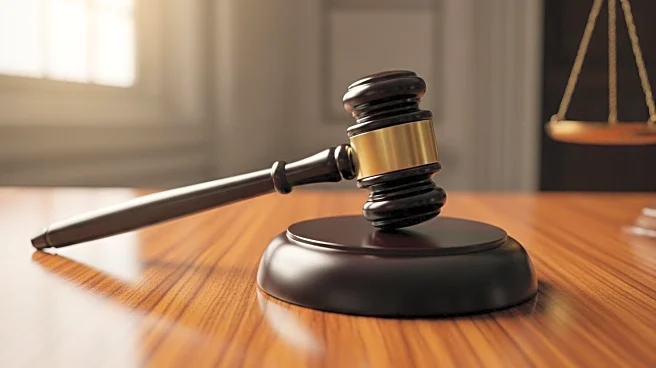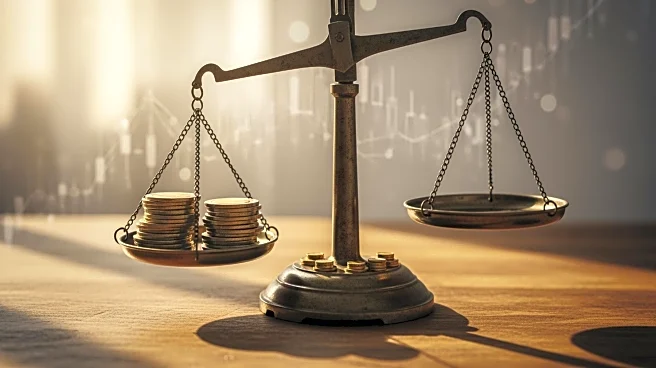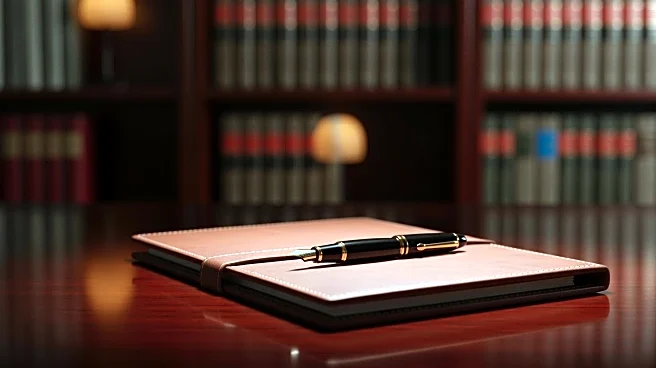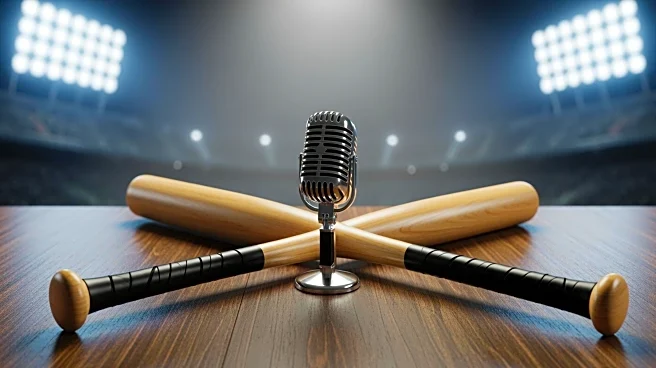What's Happening?
Alex Jones, a right-wing conspiracy theorist, has petitioned the U.S. Supreme Court to pause a nearly $1.5 billion defamation judgment against him. This judgment stems from his claims that the 2012 Sandy Hook Elementary School shooting was a hoax. Jones argues that the sale of his Infowars media company to The Onion, a satirical news site, would cause irreparable harm to him and his audience. The sale was initially rejected after a bankruptcy auction backed by the families of the shooting victims. Jones is seeking to halt the judgment while his appeal is considered, asserting that he should receive the same First Amendment protections as journalists. His attorneys claim that the payout and potential closure of his platform could have a chilling effect on media figures, deterring them from publishing due to fear of defamation awards.
Why It's Important?
The case highlights the ongoing debate over the limits of free speech and the responsibilities of media figures. If the Supreme Court sides with Jones, it could set a precedent affecting how defamation cases are handled, particularly for media personalities who challenge mainstream narratives. This could impact the legal landscape for journalists and media companies, potentially increasing the risk of defamation suits in ideologically diverse regions. Conversely, if the judgment is upheld, it may reinforce accountability for spreading false information, especially in cases involving sensitive topics like mass shootings. The outcome could influence public policy on free speech and media regulation.
What's Next?
The Supreme Court is expected to consider Jones's application in private, with a decision potentially influencing future defamation cases involving media figures. Stakeholders, including media companies and free speech advocates, will be closely monitoring the court's decision. Depending on the outcome, there may be increased calls for legislative action to clarify the boundaries of free speech protections for media entities. The decision could also prompt discussions on the ethical responsibilities of media figures in disseminating information.
Beyond the Headlines
The case raises ethical questions about the balance between free speech and the harm caused by false narratives. It underscores the potential consequences of misinformation, particularly in cases involving tragic events. The legal battle may also reflect broader cultural tensions over media accountability and the role of conspiracy theories in public discourse. Long-term, the case could influence how society navigates the intersection of free speech, media influence, and public trust.









